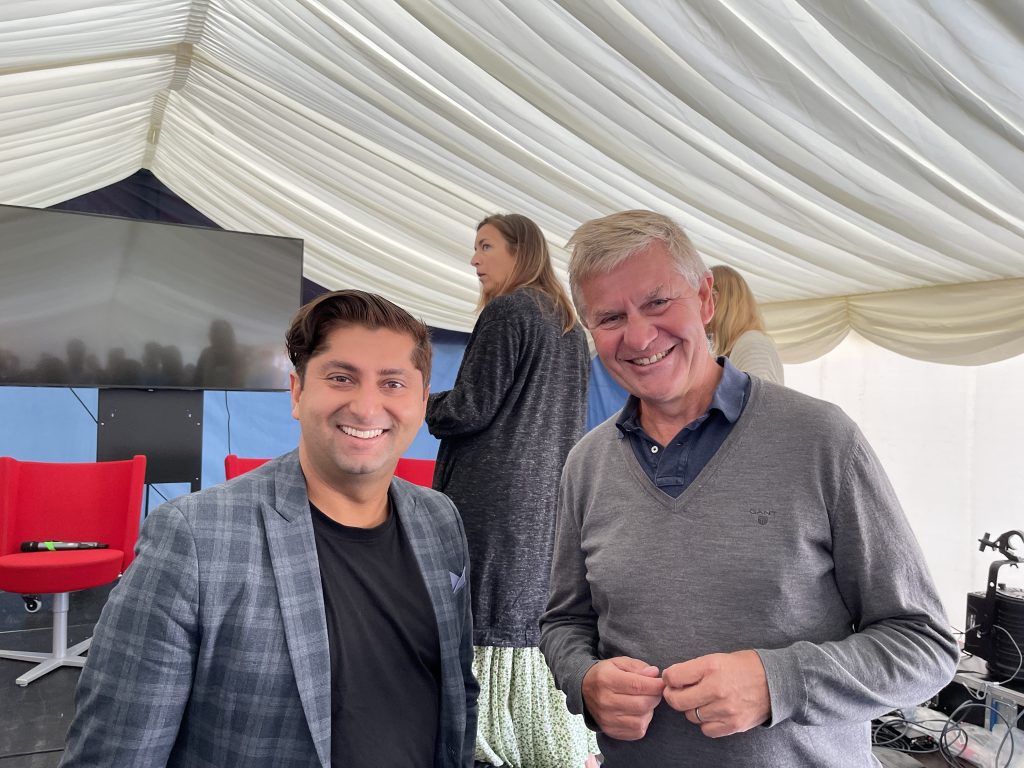India will come out of the Corona crisis as a rising global economic center. By 2050 India will be the second largest economy in the world. Our panelists see a window of opportunities for Norwegian business, that we have to invest more in, and act on. We have to do it now! Think of India as New York in the 1920´s and it becomes clear why we cannot wait.
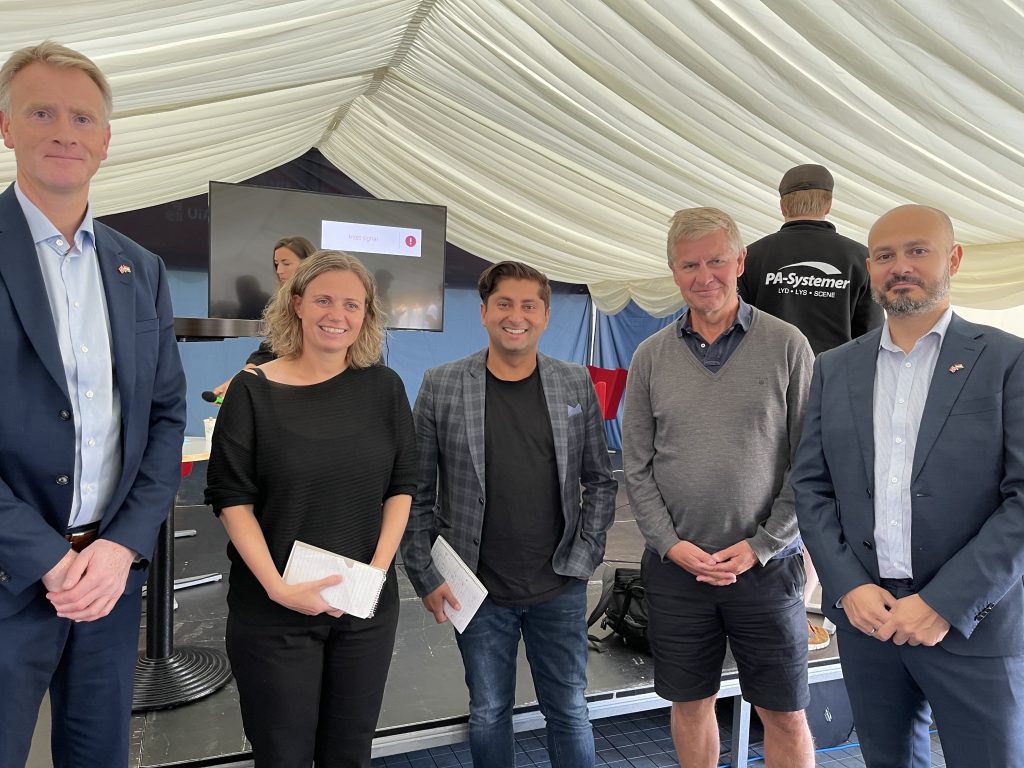
Time and place: Arendal 19th August 2021
Topic: The world’s second largest economy by 2050. How is Norway positioned for cooperation with India?
Organized by Norway India Chamber of Commerce & Industry, the University of Agder (UiA) and the Research Council of Norway.
NICCI board member Per Reinboth opened the meeting by welcoming the audience in Arendal and everyone that followed us on the event live-stream. He highlighted the advantage of being part of the steadily growing NICCI network, and how important it is to be active on the NICCI meeting places and act on opportunities identified by NICCI and partners in Team Norway.
The events first address was given by State Secretary, Ministry of Trade, Industry and Fisheries Mr. Lars Andreas Lunde.
-Norway and India has an important collaboration. During the pandemic we have continued as many projects as possible in order to continuously: 1. Meet global challenges 2. Ensure Norway`s access to talent 3. Boost competitive advantages 4. Enhance research and development.
-Our job is to ensure safe frames and opportunities for commercial business.
He especially mentioned hydrogen, maritime, green transport and renewable energy, in addition to many other relevant sectors for Norwegian businesses. He also ensured that the work of negotiatinga an free-trade agreement with India continues to be focus for the ministry.
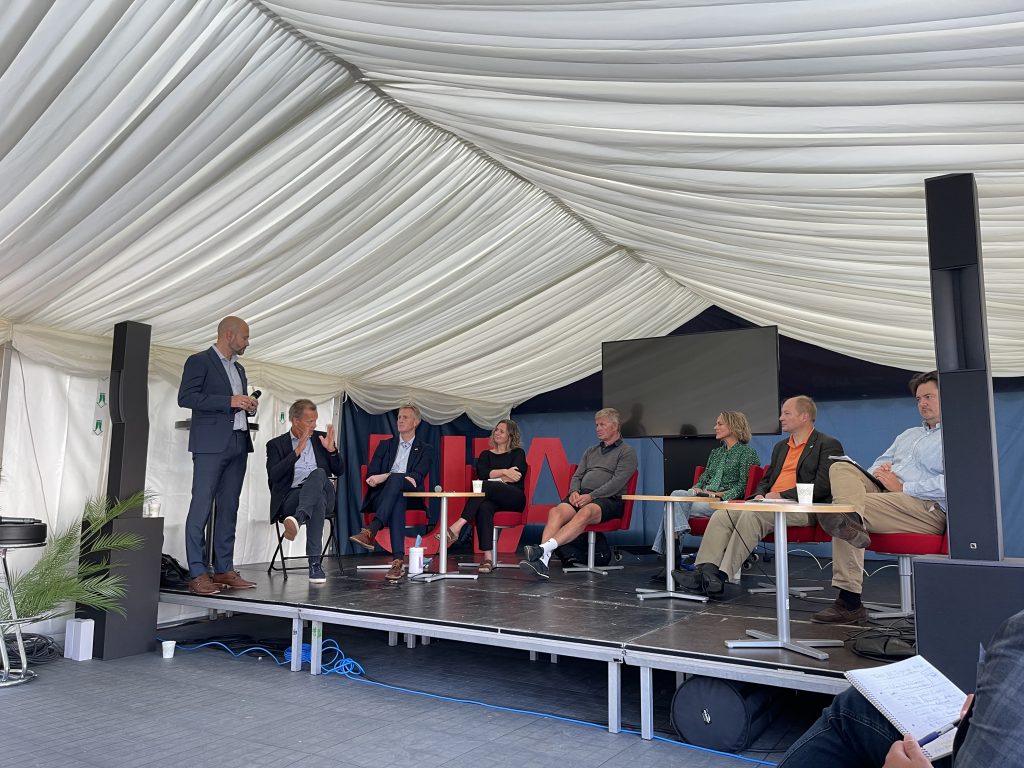
The second address of the event was given by Jens Frølich Holte, State Secretary, Ministry of Foreign Affairs.
-Our Prime Minister, Erna Solberg, visited India in 2019 and through our governments India strategy we underline Norway’s commitment and the importance of this bilateral collaboration.
Mr. Holte highlightet the importance of the formal “ocean dialogue” that secures us an important position as a partner for India, as India seeks to increase the environmental focus.
Following the opening remarks was the panel discussion, moderated by Cristian Valdes Carter, new Director of Innovation Norway India and Commercial Counsellor at the Royal Norwegian Embassy, New Delhi.
Erik Solheim, Chief mentor in the Global Alliance for a Sustainable Planet sent some very clear messages to the audience.
-India is still one of the most hopeful countries. To ensure positive collaboration we still have a way to go to put away the Norwegian arrogance and ignorance. It is true that we do have competencies that s relevant, but we should not undermine India. As an example, India has the cheapest solar energy on the planet and was the first with solar driven trains and airports. Even though the pandemic has taken its toll on India, they are an increasing global economic center, and we need to be a part of that not only by contributing with what we know -but by being humble and willing to learn.
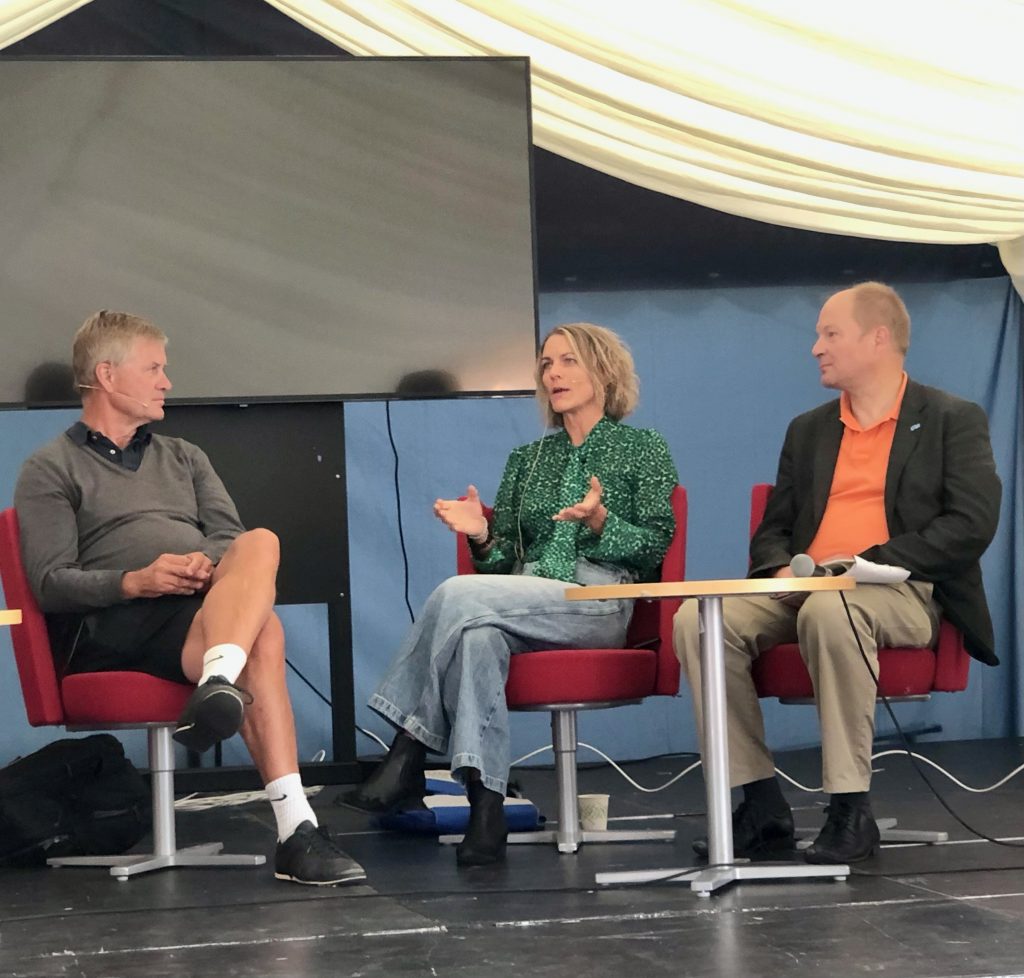
The Norwegian Consul General in Mumbai Arne Jan Flølo had the following main message to us; -to succeed in India companies needs to think long term and be willing to invest time to understand the business culture and markets in India. Only then we can unlock the huge potential.
Mr. Flølo said that India seeks to quadruple their use of renewable energy by 2030, presenting an obvious opportunity for Norwegian business.
Representing the company side, Greenstat Asia was represented by Karen Landmark,
Chair of The Board.
-There is a great investment on hydrogen in India. Greenstat is a small company from a small country. We see an opening in the Indian market, but that door is closing fast. In two weeks, we open our first office in Mumbai. The collaboration with other Norwegian organizations on site is of great importance, as well as the support of Team Norway. Following the “triple helix” approach we work with academia, industry and government. We could not do this alone. Innovation Norway supported the establishment of a company network in Norway. Together with our partner Indian Oil we open a center of excellence to facilitate research and commerce.
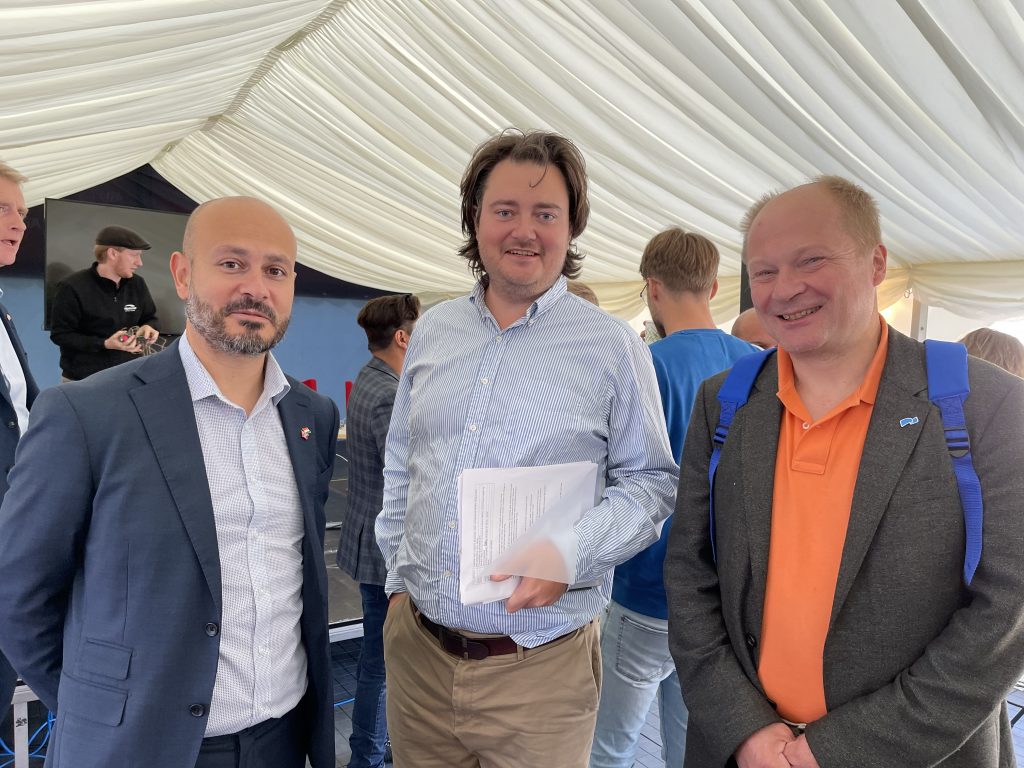
Fridtjof Fossum Unander, is Executive Director Sustainability and the green transition, in The Research Council of Norway said that research can be used as a tool to strengthen business.
-Our India-program has been ongoing for the last 10 years which have resulted in over 200 projects. This is a great foundation for further collaboration which we could and should utilize.
-The Zero Emission goal is a global challenge, where India plays a big role. Climate technology together with India will promote Norway in a global perspective. We need to be present and on site. This is an ongoing global competition and focus -where we have the knowledge and relations to be in the lead.
The key take-home from Stina Torjesen, Associate Professor – University of Agder was that the educational collaboration is essential.
-We have an ongoing strategic collaboration with the eminent IITB. We send civil engineers from UiA to IITB for a combination of studies and internship in Norwegian companies in Mumbai.
-The new generations of business leaders will have to understand global complex markets. We want to be in the front line of ensuring this knowledge. -With this in mind, I wonder if the Panorama-strategy is powerful enough. Norway is still of interest for India, but we need to build stronger relations to seize the opportunities that are there now.
-Look at India as New York was in the 1920´s and you will understand the opportunities in being part of India’s growth.
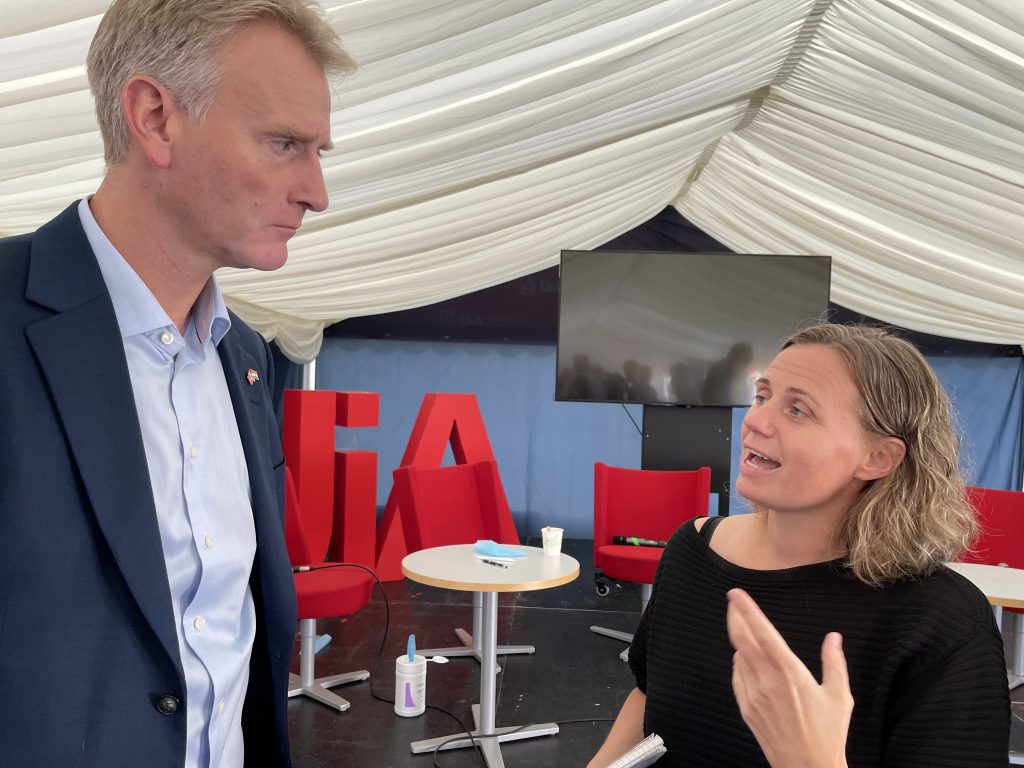
NICCI want to thank our co-organizers, speakers and panel. Thanks so much to Cristian Valdes Carter, Innovation Norway in India – for excellent work with content and moderating the panel discussion. We look forward to another India event in Arendal August 2022.
